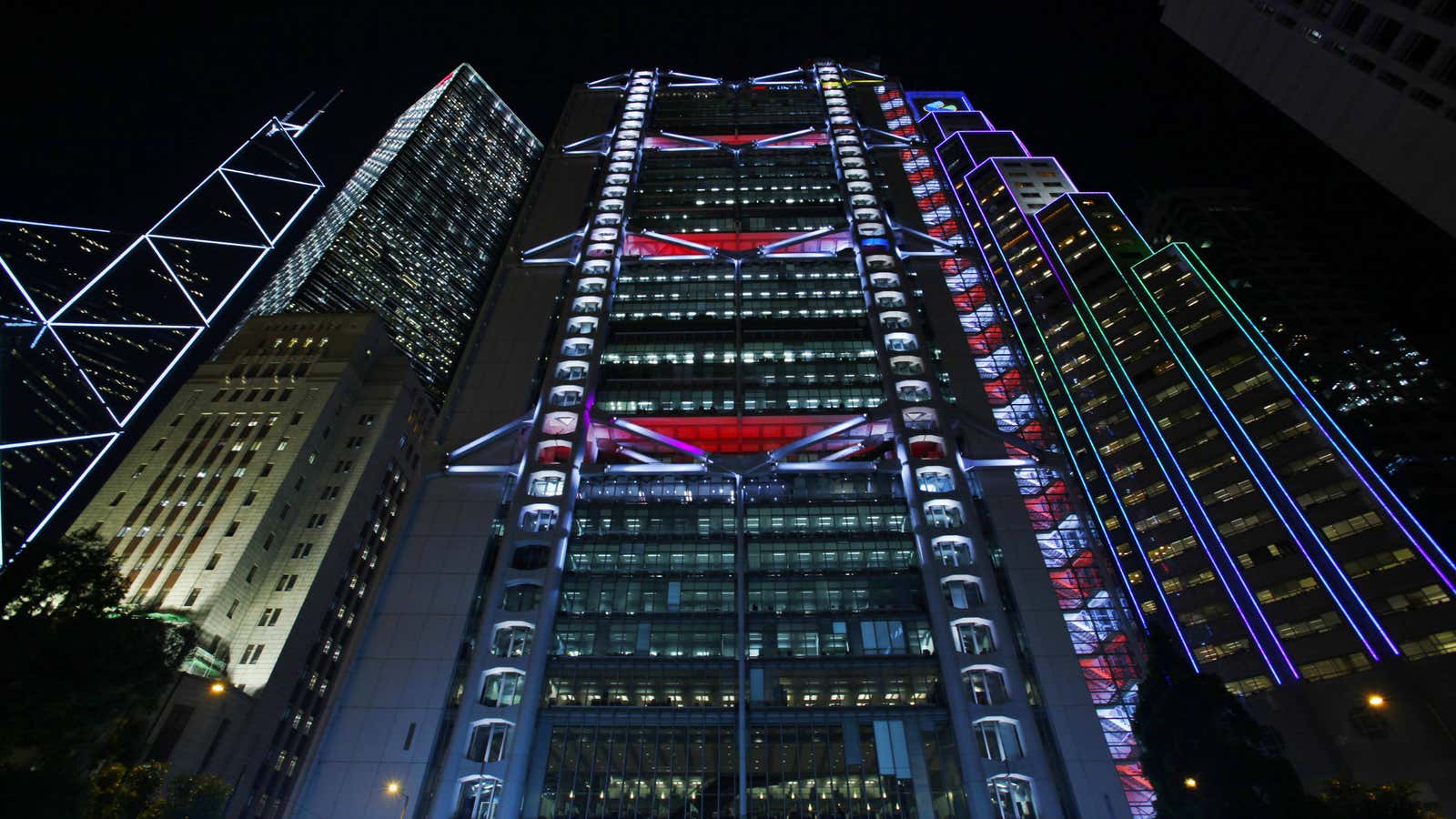HSBC CEO Stuart Gulliver is certainly under pressure. The bank said annual profits plummeted by 17% yesterday, triggering a stock sell-off, its Swiss private bank allegedly served unsavory characters including arms dealers and corrupt officials, and Gulliver himself is tasked with explaining why he hid more than $7 million in bonus payments in a Swiss account.
Maybe that helps to explain the curious comments he made to the Financial Times (paywall) about the bank’s troubles after earnings came out:
“It seems to me that we are holding large corporations to higher standards than the military, the church or civil service,” said Mr. Gulliver. “Can I know what every one of 257,000 people is doing? Clearly I can’t. If you want to ask the question could it ever happen again — that is not reasonable.”
Gulliver isn’t winning any friends with the clergy, military and civil service, who earn vastly less than bankers, while often dedicating their lives to helping others. But his comments also bolster a theory that’s become more popular as the number of banking scandals multiply: the world’s giant financial institutions are just “Too big to manage.”
The Harvard Business Review succinctly described the problem in late 2013:
The profound underlying question is whether these major financial institutions could have prevented the welter of business and related legal/accounting issues in the past and, more importantly, whether they can prevent such problems in the future…Are these huge major financial institutions not just too big to fail, their leaders “too big to jail” (as some critics charge), but also “too big to manage”?
Adhering to an overlapping global network of laws and regulations, while paying far-flung pools of employees based on the profit they bring in, has proven impossible for most big banks, with disastrous consequences for investors and customers.
HSBC alone paid nearly $2 billion in fines in 2012 for breaking anti-money laundering laws in the US and took a $1.6 billion charge for fines and restitution for everything from currency-fixing to misrepresenting insurance products in the UK. And the bank isn’t through yet—HSBC faces an additional $1 billion in new fines related to foreign exchange and US debt products.
After yesterday’s results, some analysts are clamoring for a split. “The most obvious solution is to break the bank up, as the evidence suggests that the bank is too big to manage,” said Ed Firth, a London-based analyst at Macquarie Group. HSBC still hasn’t learned its lesson in the years following the 2008 financial crisis, and is “more of a social menace than a social good,” Bloomberg View columnist Mark Gilbert writes.
During the earnings conference call Monday, Gulliver himself said management is “still on a journey to simplify” the bank. HSBC is manageable as it is, he said, yet the bank may sell assets in Turkey, the US, Brazil and Mexico. That should trim the ranks of those hard-to-track employees.




